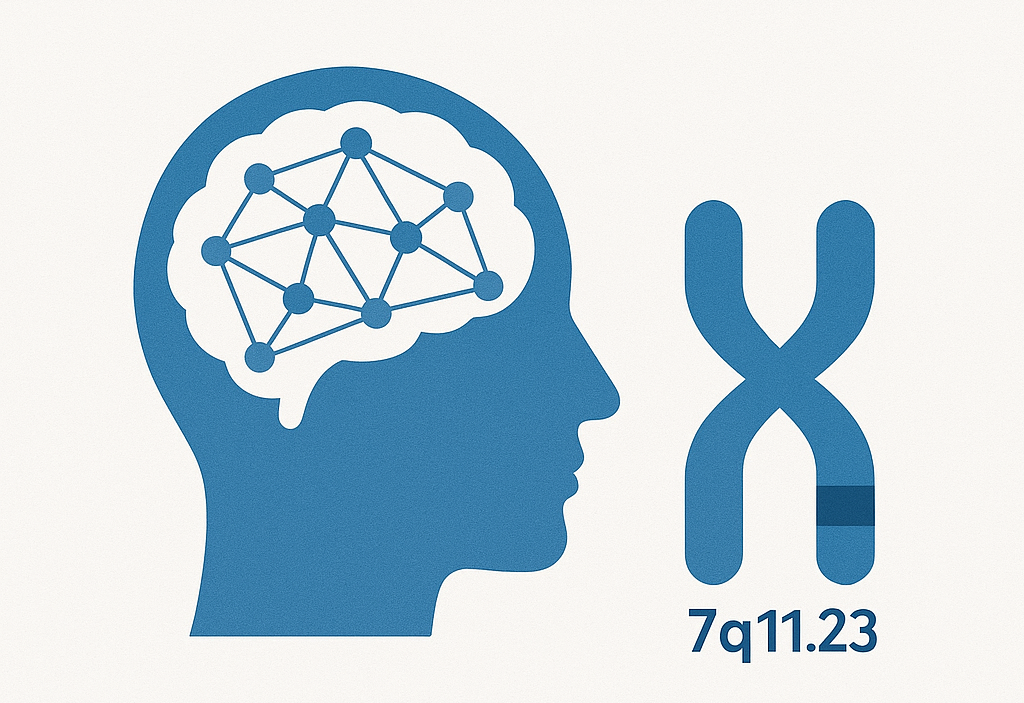Williams syndrome (WS) is a rare genetic neurodevelopmental disorder, with a prevalence of approximately 1 in 7500 births, caused by the microdeletion of a critical region on chromosome 7q11.23. The clinical manifestations of WS usually involve the cardiovascular, central nervous, gastrointestinal and endocrine systems, and the cognitive phenotype is normally characterized by intellectual disability and visuospatial deficiencies, while showing relative strengths in verbal skills and nonverbal reasoning skills. Within linguistic skills, although performance in some lexical-semantic (e.g., vocabulary) tasks might seem to be unaffected in WS, their semantic representations would be shallower, with a lower level of abstraction, and they would show a lower level of complexity in the online processing of lexical-semantic information. Moreover, this lexical-semantic processing pattern does not appear in other genetic neurodevelopmental disorders, such as Down syndrome, so it does not seem to be attributable to intellectual disability. Nevertheless, it remains unclear whether the organization of semantic memory itself (i.e., semantic networks, and how semantic connections are established in the mental lexicon) is modulated in WS. This is directly related to the main scientific objectives of this project: (1) to establish whether semantic memory is anomalously organized in WS, through the study of semantic networks; (2) to analyze whether newly learned concepts are appropriately related to lexical-semantic representations already stored in the mental lexicon of people diagnosed with WS; (3) to determine whether the neural organization of semantic representations is altered in WS; and (4) to establish which specific genes within the 7q11.23 region may be responsible for semantic processing deficits in WS.




